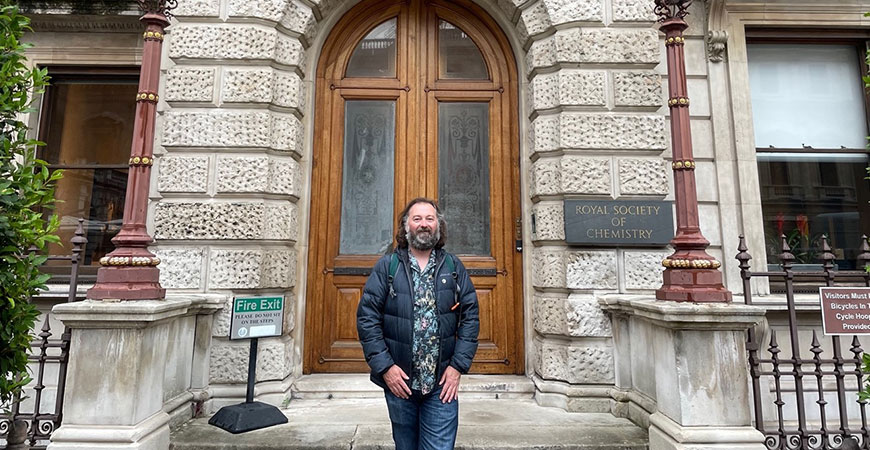
Professor Michael Findlater has been named a Fellow of the Royal Society of Chemistry (RSC), a U.K.-based learning society that began in 1841 with the formation of the Chemical Society of London.
In 1980, the four major British chemistry societies — the RSC, the Society for Analytical Chemistry, the Royal Institute of Chemistry and the Faraday Society — merged to form The Royal Society of Chemistry, which was granted a new Royal Charter.
Fellows are nominated by other members because of their distinguished research careers, impact on scientific advancement and benefit to the application of chemical science through public service, outreach, policy development and change, and through connecting or leading the chemical science community to provide solutions for societal challenges.
Fellowship is the most senior category of membership and typically represents that a Fellow has an influential position in the chemistry community, possesses expertise and experience, and is committed to helping society understand and value the contributions of the chemical sciences.
The Royal Society of Chemistry was the first society Findlater joined during his undergraduate days in Scotland.
“I maintained membership for many years but after I moved to the U.S. I joined the American Chemical Society. However, as I progressed in my career, I realized that the RSC was involved in many activities promoting chemistry in society and broadening participation and research excellence, in addition to supporting in the dissemination of chemistry via its publications. This spurred me to rejoin the Society after many years away,” he said.
“Personally, it means not only a feeling of ‘closing the circle’ but also one of recognition of the work my team has been able to accomplish over the years and of our contributions to chemistry.”
Findlater’s lab focuses on organic and organometallic chemistry to replace precious metal elements in organic synthesis with earth abundant metals. Recently, he became the first faculty member at UC Merced to join one of the Department of Energy’s newest Energy Frontier Research Centers. The EFRC Findlater works with is coupling two transformations that are known to work independently to capture CO2 and convert it into useful molecules and materials in energy- and cost-effective ways.
As an RSC Fellow, Findlater said, he hopes to serve as a member of an interest committee, which is typically focused on one sub-area of chemistry, as well as advocating for chemistry and science in general.

